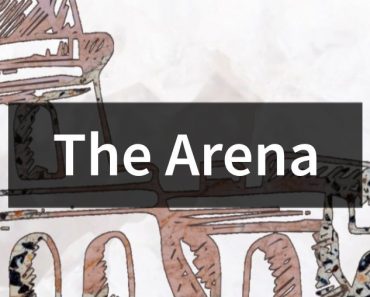High up on Mount Olympus, Zeus (Jeff Goldblum), King of the Gods, is beside himself with anxiety and rage. He is fearful of his infinite power being snatched away owing to a prophecy. Down on earth, in ‘Krete’, on the Day of Olympia, a monument dedicated to his existence is desecrated, angering him no end. Petty, highhanded and extremely consumed by himself, Zeus is the quintessential tyrant. His awful actions and behaviour are sometimes masked by humour to lighten the mood. Hera (Janet McTeer), Zeus’ sister-wife, plots and schemes, while attempting to humour him. Frivolous young Dionysus (Nabhaan Rizwan), the God of pleasure and madness, happens to be Zeus’ only child who visits him. Back in Krete, the former conjures ways to impress his father and be taken more seriously. Among the mortals, Riddy / Eurydice (Aurora Perrineau) is married to rockstar musician, Orpheus (Killian Scott), whom she has fallen out of love with. President Minos (Stanley Townsend) is in the thick of apprehending the protestors who defiled the monument, with his suspicions firmly on members of the Trojan community. A mere puppet of Zeus and the Gods, Minos is simply there to carry out orders. His daughter Ari / Ariadne (Leila Farzad), a staunch supporter of her father, is supposed to have accidentally caused the death of her brother, Glaucus, when they were infants. In the deathly realm, Zeus’ brother Hades (David Thewlis) and his wife, Persephone (Rakie Ayola), deal with the pressure of managing and segregating those travelling through the frame (for renewal or re-birth) from those staying back in the underworld. Zeus summons his other brother, Poseidon (Cliff Curtis), to set Krete’s affairs in order. Prometheus (Stephen Dillane) narrates the story, making mention that there are only three mortals with no relation to one another who have the power to bring Zeus down. The only thing linking them is a prophecy.
Kaos impresses in how it plays out as a metaphor for the real world and its myriad set of problems. Zeus and his eccentric, authoritarian ways mirror the megalomaniacal leaders of our time, those who enjoy influence beyond compare. Much like in the series, accountability isn’t something that is high up on their agenda. As seen in Zeus’ case, his main priority is to keep his seat of power intact. And once his authority is challenged (from mere mortals and his celestial family) and his popularity begins waning, he uses every dirty trick in the book to hang on to that power. He explains his philosophy in clear terms to Dionysus: wreak havoc and sow great discord among humans, and there will be a big spike in faith. Humans, the lesser beings in this case, are expendable in his estimation. All of it sounds rather familiar, doesn’t it?






